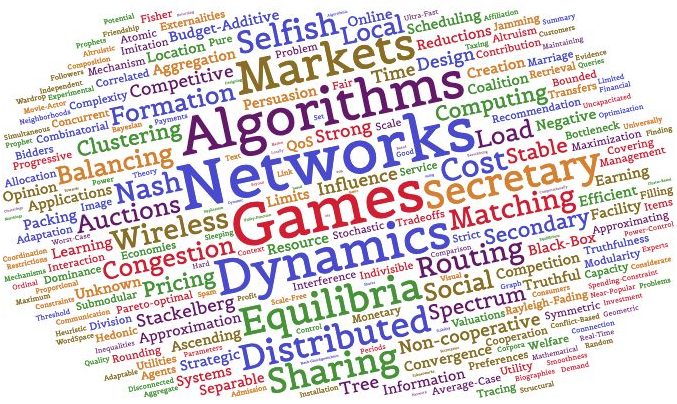Contact
Algorithms and Complexity
Computer Science 1
RWTH Aachen University
Ahornstrasse 55
D-52074 Aachen
Secretary Office:
Erika Schlebusch
Informatikzentrum, E1
Room 4023
Tel.: +49 (0) 241 80-21101

New Paper in Algorithms for Molecular Biology 21 Jan 2026
Transcription factors (TFs) are essential in the regulation of gene expression. They can be used to address diseases via manipulation of specific cell functions or pathways. The interplay of TFs and genes can be modeled as a network, in which each edge represents a regulatory influence. A challenge is the identification of a set of TFs with the maximum regulatory influence. In our paper "Probing transcription factor subsets in gene regulatory networks" (by Lukas Geis, Dennis Hecker, Martin Hoefer, Ulrich Meyer, Marcel Schulz) we study finding a set of TFs to maximize the influence on a set of genes as a probing problem in a bipartite graph. We analyze different adaptive and non-adaptive algorithms and test their performance on real-life data to find TFs regulating genes involved in T-cell mediated immunity and lymphoid leukemia. The paper has been accepted for publication in Algorithms for Molecular Biology.
Welcome 1 Jan 2026
Svenja Griesbach joined our group as a PostDoc. Welcome, Svenja!
New Paper at STACS 2026 12 Dec 2025
Our paper "Computing Tarski Fixed Points in Financial Networks" (by Leander Besting, Martin Hoefer, Lars Huth) was accepted at the 43rd International Symposium on Theoretical Aspects of Computer Science (STACS 2026), a leading conference in theoretical computer science.
Sukanya Pandey moves to Durham University 26 Nov 2025
Our group member Sukanya Pandey accepted an offer to become a Career Development Fellow at Durham University. Congratulations!
Dissertation Defense 7 Oct 2025
Christoph Grüne successfully defended his thesis entitled Computational Complexity of Problems in Robust, Bilevel and Online Optimization. Congratulations to Dr. Grüne!
